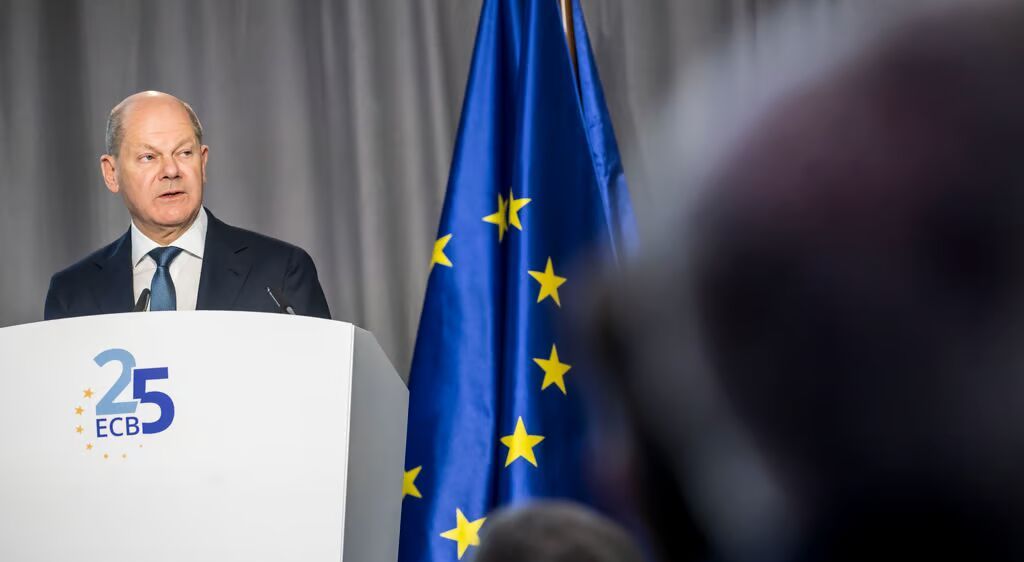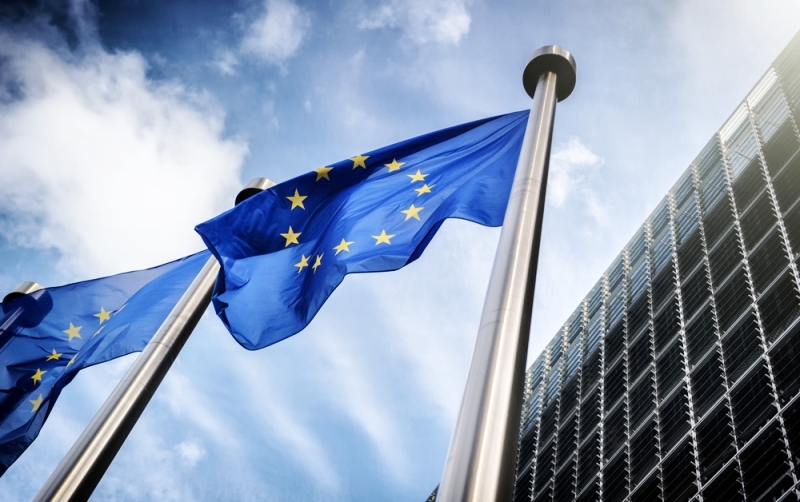
Europe’s economy barely escaped a recession in 2023, new data showed on Tuesday. A recession means the economy is shrinking for two quarters in a row. But Europe’s economy did not grow or shrink in the last quarter of 2023. It was the same as the quarter before, when it shrank by 0.1%.
The data came from Eurostat, the EU’s statistics agency. It covers 20 countries that use the euro as their currency. It also covers the whole EU, which has 27 countries. Both the eurozone and the EU grew by 0.5% in 2023.
But Europe’s economy is still weak. It has not recovered well from the pandemic. It faces high prices and high interest rates. Interest rates are what the banks charge for lending money. The European Central Bank (ECB) raised them to stop prices from rising too fast. But this also makes it harder for people and businesses to borrow and spend money.
Energy prices are exceptionally high in Europe. They went up a lot in 2022, when Russia invaded Ukraine. Russia is a big supplier of natural gas in overall Europe. Natural gas is used to heat homes and make electricity. The prices are still high now.
Germany is Europe’s biggest economy. But it did not do well in 2023. It was the first time it shrank since the pandemic started. In the last quarter of 2023, it shrank by 0.3%. Germany’s statistics office confirmed this on Tuesday.
Italy and Spain did better than expected in the last quarter of 2023. They grew by 0.2% and 0.6%, respectively. This helped Europe’s economy stay stable at the end of the year.
France is Europe’s second-biggest economy. It did not grow or shrink in the last quarter of 2023. But it grew by 0.7% in the whole year.
Some economists are not happy with the data. They say it does not change the fact that Europe’s economy is in trouble.
Christoph Weil is a senior economist at Commerzbank. He said there is “no reason to celebrate.”. He wrote in a note that the high interest rates stopped the economy from growing in the summer. He said the economy will not get better until the spring.
He also said the ECB will not lower interest rates before the summer. He said the high prices will not go down soon. He said the lower interest rates will not help the economy until 2025.
Jack Allen-Reynolds is a eurozone economist at Capital Economics. He has a similar view. He said Europe avoided a recession by a small margin. But he said this does not matter much. He wrote in a note that Europe’s economy has not grown since the third quarter of 2022. That was when energy prices went up and the ECB raised interest rates.
He said Europe’s economy will not grow much in the first half of 2024. He said the high interest rates and the low spending by governments would hold it back.

Leave a Reply